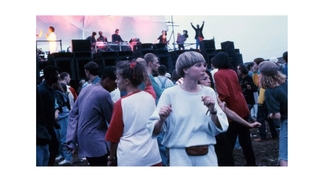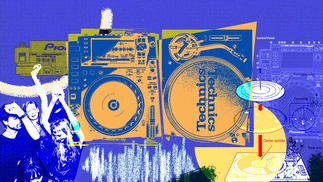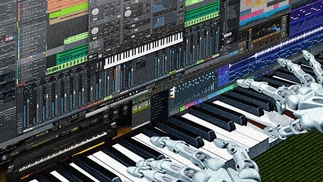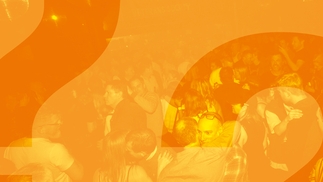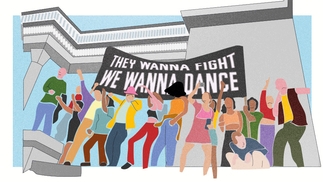Track ID? Keeping music secret is the opposite of what a DJ should do
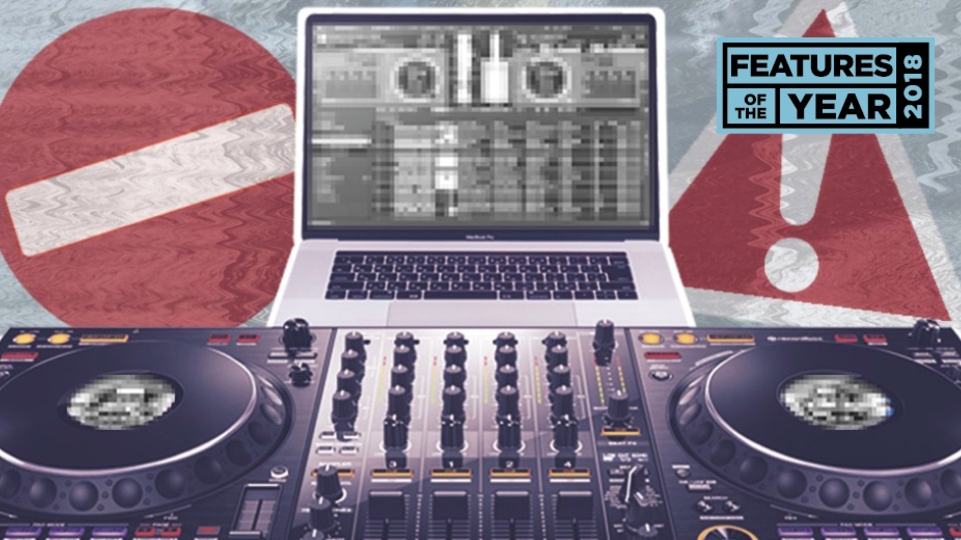
With the rise of Shazam, The Identification of Music Group and "Track ID?" culture, some DJs have become increasingly protective of the music they play. But is secrecy the solution when the whole point of DJing is to share?
Imagine it. You’re at a party in your mate’s back garden, all your friends are there, spirits are high, the sun’s just setting, your tins actually fit in the fridge and whoever’s been in charge of the aux cable has been doing a great job of keeping the vibe alive. Roy Ayers was on when you arrived, some nice disco and classic soul came on as the mood settled and a even few Rush Hour gems were chucked in for good measure as the night progressed. Then, you ask the iPhone DJ the name of a track you were enjoying and all you’re met with is a dismissive shrug and a smug side glance: “Top secret, mate”.
It’s the sort of lingering interaction that leaves you scratching your head and asking why the heck someone would be so protective of something that was literally made to be shared. Why would someone be so secretive about a piece of music that, presumably, the producer wanted as many people to discover as possible? Bizarre as it is to have such an interaction with some bloke at a party, really it’s not all too far removed from the contentious habit of DJs who make careers out of holding arsenals of “secret weapons” and illusive, taped over records close to their chests while vocally denying anyone else the names of releases and bemoaning the culture of, god forbid, trying to work out what songs you heard in the club last night .
It’s a divisive topic that has been bounced back and forth repeatedly among DJs over the past couple of years with reasonable arguments being made on both sides. Some have expressed a justified frustration at the idea of a DJ, up and coming or otherwise, using something like the Identification Music Group or Shazam to build a repertoire of tracks that mimics the catalog, style and technique of someone who has worked hard for years to carve their own niche. Others, such as Indiana’s techno champion Noncompliant and disco king Dimitri From Paris, have shunned any implicite secrecy in DJing, citing that the whole reason DJs do what they do is to share and celebrate music with others. Protectiveness in that regard surely does nothing but shield egos and feed into an increasingly annoying micro-culture that idolises the “selector” as the arbiter of an inaccessible “cool” rather than as a champion of music that deserves to be platformed. Plus, as Noncompliant AKA DJ Shiva pointed out, “if your only edge is your super secret weapon tracks, maybe you should learn how to mix better”.
Listen. None of this is to encourage anyone to Shazam a whole set or spend an entire night with your phone in the air taking rubbish videos. If you go to a club and that’s your prerogative over actually dancing and enjoying yourself then you should probably reconsider what it is you want to do in your spare time. Nor is any of this a justification for bulldozing your way through a dancefloor to sweatily lunge at the DJ and howl an I.D. request at them. No one’s entitled to barge into someone’s personal space, especially when that person is literally working. Nonetheless, if you genuinely just want to know the name of a track you loved and you have a basic understanding of human boundaries and when to ask (drop them an email, hit them up on Twitter, maybe they’re floating around after the gig), what right has any DJ to explicitly deny you for the sake of keeping “their” tracks to themselves?
The idea that a DJ has an authority to keep schtum about music produced by other people is perhaps the most baffling part of this whole conversation. Crucially, and especially in the underground sphere, for a DJ to be protective of the music they’re playing can only be seen as damaging for the emerging artists and labels who made the tracks in the first place. Platforms like Bandcamp make the work of hundreds upon hundreds of producers available on a scale like never before and have given underground artists endless potential to have their music distributed globally among people in a position to boost them to new heights. That’s not much good if your track is being hidden and no one else is given the chance to hear it again, let alone pay for it. While no one wants to encourage copycat culture among DJs, gatekeeping to the point where emerging artists are given less of a shot is hardly the best solution.
While maintaining a sort of mystery in sets and recorded mixes about forthcoming tracks and EPs can be great for creating a foundational hype or curious hysteria ahead of release, being universally secretive is like making dinner for your mates but refusing to tell them what ingredients you used. Ultimately, while it’s fair that DJs don’t want their record digging graft to be copied by poseurs who couldn’t mix eggs without watching DJ EZ do it first, raising a veil of secrecy is hardly the best way around that. Music is meant to be shared, and no one is better qualified to do that than a good DJ. Restricting that element of the community – and it is, after all, supposed to be a community – just ends up feeling like an unnecessary,counterintuitive loss.
